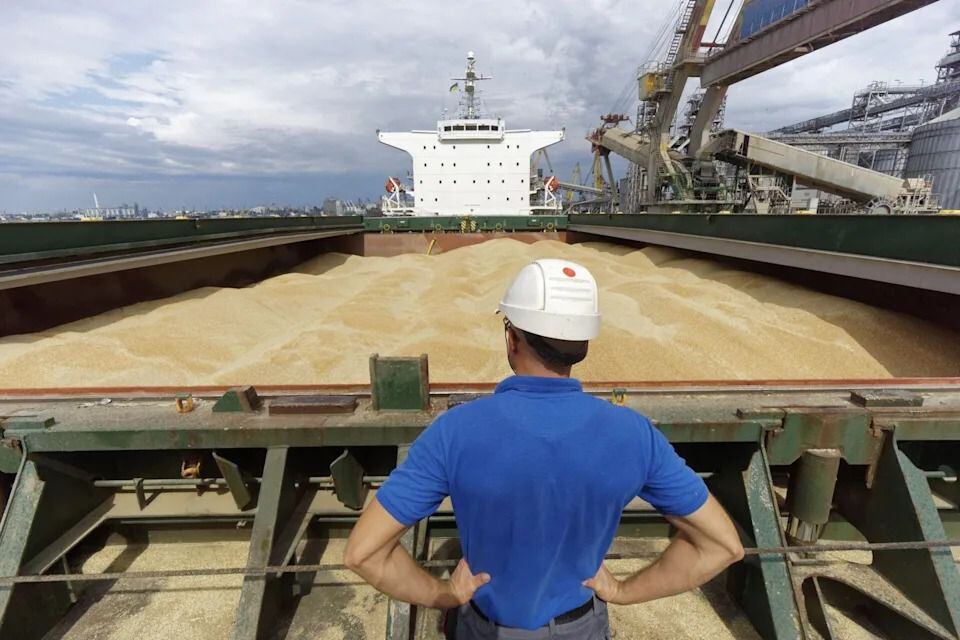
Russia’s invasion of Ukraine means that the food inflation that has been plaguing consumers around the world is turning into a widespread crisis, one that could exceed even the impact of the pandemic and leave millions more suffering. hunger.
Together, Russia and Ukraine they represent a huge part of the world’s agricultural supplies, exporting so much wheat, corn, sunflower oil and other foods that they add up to more than a tenth of all the calories traded globally. Now, shipments from both countries have practically come to a standstill.
Commodity markets have soared: wheat is up 50% in two weeks and corn just hit its highest level in a decade. Rising costs could end up hitting currencies in emerging markets, where food makes up a larger share of consumers’ price baskets. And analysts expect export flows to remain disrupted for months, even if the war ends tomorrow.
The crisis goes beyond the impact of grain exports (as critical as they may be). Russia is also a key supplier of fertilizers. Virtually every major crop in the world depends on inputs like potash and nitrogen, and without a steady flow, farmers will have a harder time growing everything from coffee to rice to soybeans.
In short, there are few places on the planet where a conflict like this could deal such a devastating blow to ensuring that the food supply remains plentiful and affordable. That is why Russia and Ukraine are known as the “barns” of the world.
“It’s an incredible food shock”said Abdolreza Abbassian, an independent market analyst and former senior economist at the Food and Agriculture Organization of the United Nations. “I do not know of a situation like this in the 30 years that I have been involved in this sector.”.
The impact is already reverberating around the world. On Brazilanother agricultural powerhouse, farmers can’t get the fertilizer they need because retailers are reluctant to provide price quotes.
On Chinaone of the world’s largest food importers, buyers are rushing to buy up supplies of corn and soybeans from the United States amid concern that declining crop shipments from Russia and Ukraine could trigger a global scramble. for the cereals.
On Egypt, People are worried that prices of the subsidized loaves of bread they depend on will rise for the first time in four decades, while images of citizens in Turkey trying to get cheaper cans of oil have gone viral. And in Ukraine itself, food is scarce in some major cities.
“The damage is already done”Abbassian said. “We will have months before we return to something called normality”.
The timing couldn’t be worse. When the pandemic first hit in 2020, images of queues winding around food banks and empty supermarket shelves shocked the world as nearly a tenth of the world’s population went hungry. But at the time, food inventories were still plentiful.
That is no longer true. Cereals are the staples that feed the world, with wheat, maize and rice accounting for more than 40% of all calories consumed. But grain stocks are about to suffer a fifth consecutive annual decline. A combination of higher transportation costs, energy inflation, extreme weather and labor shortages have made food production more difficult.
As a result, world food prices are already at record highs, and the UN benchmark has risen more than 40% in the past two years. The increase has had devastating consequences. Food insecurity has doubled in the last two years, and the World Food Program estimates that 45 million people are on the brink of famine.
The current crisis is going to make things worse, likely driving hunger to unprecedented levels, as the conflict turns millions of people into refugees and pushes food prices even higher.
“Bullets and bombs in Ukraine could push the global hunger crisis to levels beyond what we have seen before”David Beasley, executive director of the UN agency, said in a statement.
Source: Gestion
Ricardo is a renowned author and journalist, known for his exceptional writing on top-news stories. He currently works as a writer at the 247 News Agency, where he is known for his ability to deliver breaking news and insightful analysis on the most pressing issues of the day.












